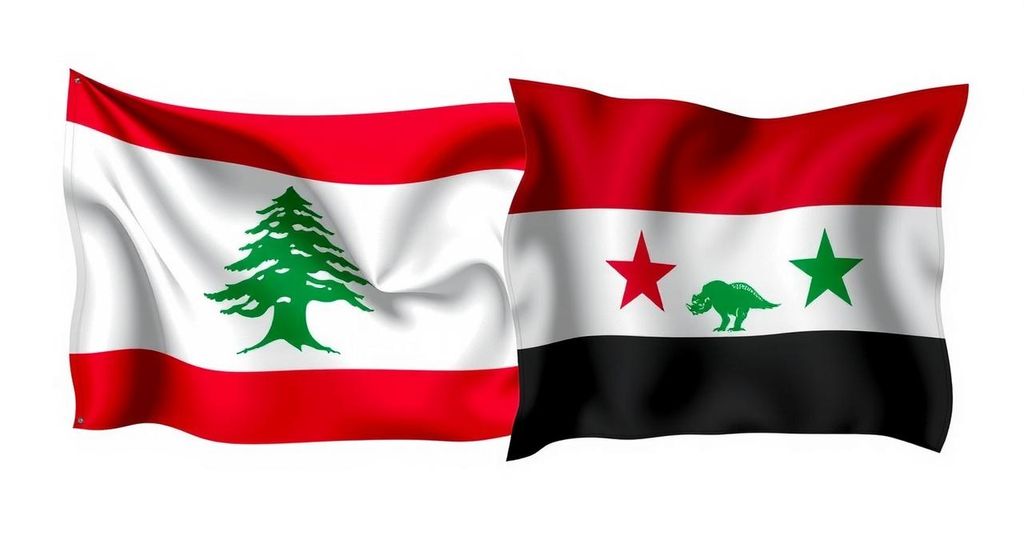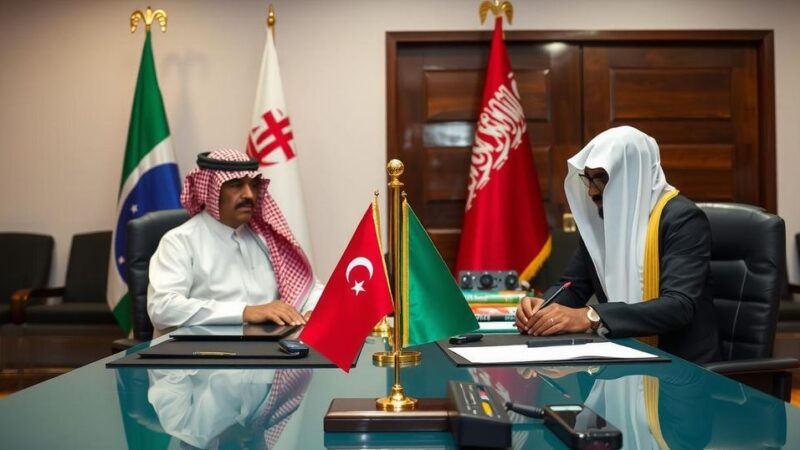Nawaf Salam has been elected as Lebanon’s new Prime Minister, succeeding Najib Mikati, with a key focus on normalizing relations with Syria. His appointment, alongside President Joseph Aoun, aims to address the fractured ties between Lebanon and Syria, exacerbated by a legacy of conflict and the influx of Syrian refugees since 2011. The leadership change is seen as a hopeful step towards regional stability and renewed diplomatic dialogue.
This week marks a significant turning point in Lebanese politics with the election of Nawaf Salam as the new Prime Minister, following a decisive victory in parliament. His appointment, succeeding the Hezbollah-aligned caretaker PM Najib Mikati, signals a potential shift in Lebanon’s foreign policy, particularly regarding its historically strained relationship with Syria. This new leadership comes shortly after the election of President Joseph Aoun, who prioritizes the normalization of relations with Syria, a goal that has not been achieved for several years.
Lebanon’s relationship with Syria has long been marred by conflict, notably marked by a military occupation that lasted from 1976 until 2005 and exacerbated by the influx of Syrian refugees following the outbreak of Syria’s civil war in 2011. The Lebanese infrastructure has struggled under the weight of this refugee crisis, leading to limited dialogue regarding the possible repatriation of Syrian nationals, particularly as Syrian President Bashar Al Assad has historically been uncooperative in facilitating their return.
As Lebanon’s new leaders embark on the journey toward restoring diplomatic ties with Syria, there is a call for peace and stability in the region. Nuna from Triumphant Mercy Lebanon emphasizes the need for prayers to support the efforts of the new government, indicating that such changes are vital not only for Lebanon but for the broader Middle East.
Lebanon’s political landscape has been volatile for decades, characterized by deep divisions and conflicts, particularly with Syria. The Lebanese civil war, ongoing since the 1970s, saw Syria intervening militarily, which left a long-lasting imprint on Lebanese sovereignty and regional dynamics. More recently, the Syrian civil war has prompted a significant influx of refugees into Lebanon, creating severe socio-economic strains. This environment has necessitated diplomatic discussions surrounding refugees and cross-border relations, especially as Lebanon seeks to stabilize under new leadership. The recent electoral outcomes are viewed as an opportunity for fresh initiatives aimed at resetting bilateral relations with Syria, which have been highly contentious and fraught with challenges for years.
The election of Nawaf Salam as Prime Minister of Lebanon alongside President Joseph Aoun opens a new chapter in Lebanese politics, marked by the ambition to normalize relations with Syria. This endeavor appears crucial for both countries, given their intertwined histories and the humanitarian challenges posed by the Syrian refugee crisis. With a commitment to fostering dialogue and exploring avenues for cooperation, Lebanon’s new leadership aims to navigate these complex historical dynamics as they seek improved stability and diplomatic engagement in the region.
Original Source: www.mnnonline.org







